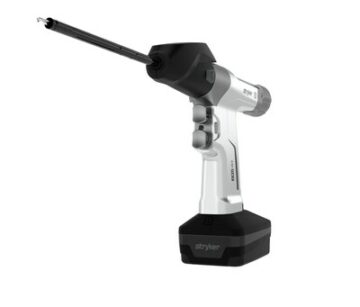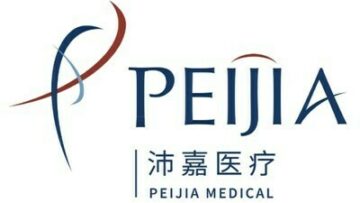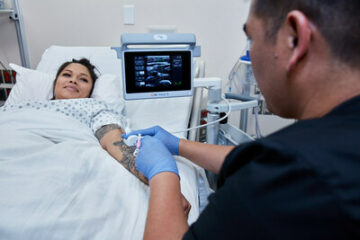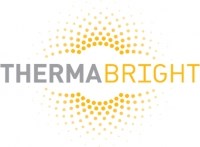Novel compact, single-story 4 Kelvin 1.0 GHz NMR systems already accepted at RIKEN, Japan and University of Barcelona, Spain in late 2022 ahead of schedule
FÄLLANDEN, Switzerland–(BUSINESS WIRE) - Corporația Bruker today announced successful customer installations of two novel, compact 1.0 GHz NMR spectrometers for advanced structural and molecular biology applications well ahead of original schedules in late 2022. Both new Ascend Evo 1.0 GHz NMR systems operate at 4.2 Kelvin without subcooling below liquid Helium temperatures, and as a result have ~65% lower liquid Helium consumption than previous 1.0 GHz 2 Kelvin, two-story magnets. These new 1.0 GHz NMR magnets also have significantly reduced footprint, weight, and ceiling height requirements and fit into most single-story laboratories. The compact systems are easier to manufacture, site and install, thus allowing acceptance in shorter timeframes.
Acest comunicat de presă este format multimedia. Vedeți versiunea completă aici: https://www.businesswire.com/news/home/20230203005036/en/

Dr. Ichio Shimada, Team Leader at RIKEN Center for Biosystems Dynamics Research in Yokohama, Japan (Photo: Business Wire)
Both compact ultra-high field NMR systems are generating excellent scientific data for functional structural and molecular biology, as well as for phenomics clinical research. This allows scientists to dive deeper into the structural details, binding and dynamics of protein structures and complexes for fundamental cell biology and pathobiology research. The RIKEN Center for Biosystems Dynamics Research in Yokohama, Japan was the first to receive the Ascend Evo 1.0 GHz NMR system, which was successfully installed and accepted in less than two months. The RIKEN team under Dr. Ichio Shimada will use GHz NMR to study dynamic structures of biomolecules in solution and to investigate the relationships between dynamic structures and biological function or pathobiology.
Prof. Ichio Shimada stated “I’m very satisfied about the smooth delivery and installation of this brand new Ascend Evo 1.0 GHz spectrometer in late 2022. We started producing first NMR research results already a few weeks after the successful commissioning. This ultra-high field GHz-class NMR spectrometer delivers new insights for our GPCR and RNA research, which is newly launched, with excellent resolution and highly sensitive direct detection capabilities for 15N și 13C. This will support and strengthen our research in structural biology with a particular focus on dynamics.”
In 2022, the Spanish Singular Scientific and Technical Infrastructures (ICTS) high-field NMR network with nodes in Barcelona, Madrid and Bilbao, purchased two 1.0 GHz instruments to be sited in Barcelona and Bilbao. These instruments will be open for competitive access and will pave the way for a new structural biology hub in Spain. The Ascend Evo 1.0 GHz NMR instrument in Barcelona was successfully installed in less than 6 weeks and is already generating exceptional data. The second Spanish 1.0 GHz system is expected to be delivered to CIC bioGUNE in Bilbao in the summer of 2023.
Professor Miquel Pons Valles, Group Leader of the BioNMR Group at Universitat de Barcelona and his team use biophysical methods, especially NMR, as well as chemical biology, molecular biology, and computations to study proteins in regulatory processes, where dynamics is essential for function. The Ascend Evo 1.0 GHz NMR will also advance their research on functionally very important intrinsically disordered proteins (IDPs).
Dr. Falko Busse, President of the Bruker BioSpin Group, commented: “We are excited to announce the remarkably rapid delivery and customer acceptance of two 1.0 GHz NMR systems. These low-maintenance, compact NMRs with lower helium consumption can bring the power of GHz NMR to many more laboratories.”
Despre Bruker Corporation (Nasdaq: BRKR)
Bruker le permite oamenilor de știință să facă descoperiri inovatoare și să dezvolte noi aplicații care îmbunătățesc calitatea vieții umane. Instrumentele științifice de înaltă performanță ale Bruker și soluțiile analitice și de diagnosticare de mare valoare le permit oamenilor de știință să exploreze viața și materialele la nivel molecular, celular și microscopic. În strânsă cooperare cu clienții noștri, Bruker permite inovarea, productivitatea îmbunătățită și succesul clienților în cercetarea în biologie moleculară și celulară în știința vieții, în aplicații aplicate și farmaceutice, în microscopie și nanoanaliză, precum și în aplicații industriale. Bruker oferă sisteme și soluții diferențiate, de mare valoare, știința vieții și diagnosticare în imagistica preclinică, cercetare fenomică clinică, proteomică și multiomică, biologie spațială și unicelulară, biologie structurală funcțională și condensată, precum și în microbiologie clinică și diagnostic molecular. Pentru mai multe informatii va rugam vizitati: www.bruker.com.

Vedeți versiunea sursă pe businesswire.com: https://www.businesswire.com/news/home/20230203005036/en/
- Distribuție de conținut bazat pe SEO și PR. Amplifică-te astăzi.
- Platoblockchain. Web3 Metaverse Intelligence. Cunoștințe amplificate. Accesați Aici.
- Sursa: https://www.biospace.com/article/releases/bruker-announces-successful-customer-installations-of-first-two-compact-1-0-ghz-nmr-systems-to-advance-structural-biology/?s=93
- 1
- 2022
- 2023
- a
- Despre Noi
- acceptare
- acces
- avansa
- avansat
- După
- înainte
- Permiterea
- permite
- deja
- Analitic
- și
- anunța
- a anunțat
- Anunțuri
- aplicatii
- aplicat
- urca
- Barcelona
- de mai jos
- între
- legare
- biologie
- BioSpace
- marca
- Brand nou
- descoperire
- aduce
- afaceri
- Business Wire
- capacități
- tavan
- Centru
- chimic
- clinic
- Închide
- COM
- a comentat
- competitiv
- calcule
- consum
- cooperare
- CORPORAȚIE
- client
- Succesul clienților
- clienţii care
- de date
- Mai adânc
- livrate
- Oferă
- livrare
- detalii
- Detectare
- dezvolta
- diferențiat
- direcționa
- dinamic
- dinamică
- mai ușor
- permite
- permițând
- mai ales
- esenţial
- excelent
- excepțional
- excitat
- de aşteptat
- explora
- DESCRIERE
- puțini
- camp
- First
- potrivi
- Concentra
- urmă
- Complet
- funcţie
- funcțional
- fundamental
- generator
- grup
- înălțime
- heliu
- aici
- Înalt
- extrem de
- HTTPS
- Butuc
- uman
- Imaging
- important
- îmbunătăţi
- îmbunătățit
- in
- industrial
- informații
- infrastructură
- Inovaţie
- perspective
- instala
- instalat
- instrument
- instrumente
- investiga
- Japonia
- Târziu
- a lansat
- lider
- nivelurile de
- Viaţă
- Știința vieții
- Lichid
- Magneţi
- face
- multe
- Materiale
- Metode
- microbiologie
- Microscopie
- molecular
- luni
- mai mult
- cele mai multe
- Multimedia
- Nasdaq
- reţea
- Nou
- noduri
- roman
- promoții
- deschide
- funcionar
- original
- special
- performanță
- Pharma
- Plato
- Informații despre date Platon
- PlatoData
- "vă rog"
- putere
- preşedinte
- presa
- Comunicat de presă
- precedent
- procese
- productivitate
- Proteină
- Proteine
- cumparate
- calitate
- rapid
- a primi
- Redus
- autoritățile de reglementare
- Relaţii
- eliberaţi
- Cerinţe
- cercetare
- Rezoluţie
- rezultat
- REZULTATE
- RIKEN
- ARN
- satisfăcut
- Ştiinţă
- oamenii de stiinta
- Al doilea
- sensibil
- semnificativ
- teren
- soluţie
- soluţii
- Sursă
- Spania
- Spaniolă
- spațial
- început
- stabilit
- A intari
- structural
- Studiu
- succes
- de succes
- Reușit
- de vară
- a sustine
- sistem
- sisteme
- echipă
- Tehnic
- lor
- la
- astăzi
- în
- universitate
- utilizare
- valoare
- versiune
- foarte satisfacut
- Vizualizare
- săptămâni
- greutate
- care
- voi
- Fire de sârmă
- fără
- zephyrnet











